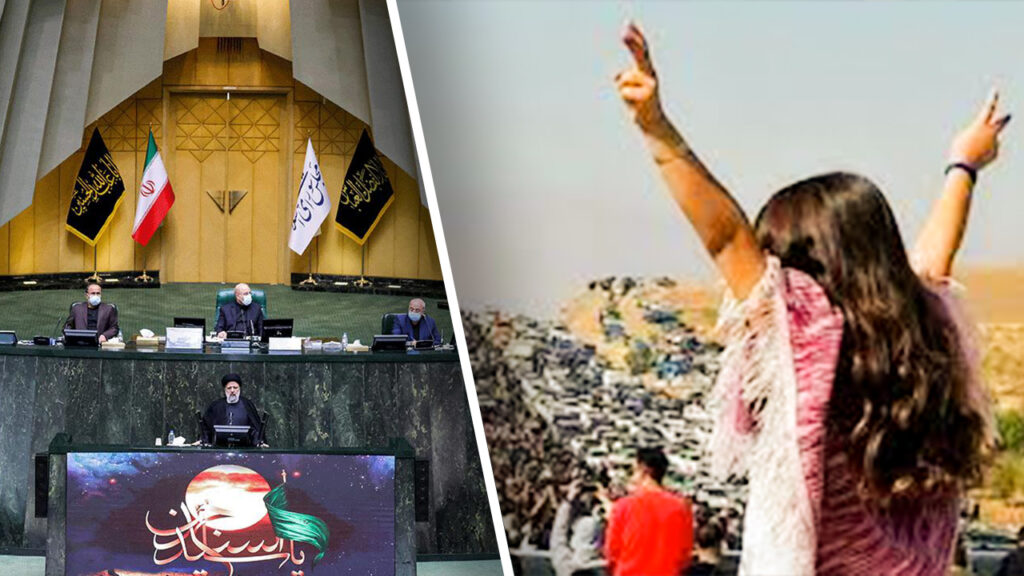Matt Broomfield
Israel’s deadly invasion and ethnic cleansing of Gaza is sending shockwaves throughout the Middle East – and providing Iran’s theocratic, brutal regime with the opportunity to style itself as the protector of minority ethnic interests throughout the Middle East. Iran has funnelled support to Hamas in Gaza and to Hezbollah across Israel’s northern border in Lebanon, exerting (at the least) a significant degree of influence over the two groups. So, too, to the Houthis in Yemen.
To varying degrees, all these forces lay claim to defending the rights of embattled minority ethnic and religious groups – Shia Muslims in Lebanon, the (Sunni) Palestinians who have suffered unprecedented violence at the hands of Israel’s Armed Forces ever since 7 October, and the majority of Yemenis who have suffered devastation and famine at the hands of the Saudi-led Coalition. As the leader of an isolated security state with the blood of hundreds of thousands of its own citizens on its hands, Bashar al-Assad has less claim to defend anyone against state violence, but even he is able to style himself as the defender of the country’s dominant Alawite class against state-sponsored jihadist attacks. And he, too, benefits from Iranian support and reckons with Iranian influence on his policy, as the USA’s bête noire seeks to benefit from worsening chaos and destabilisation throughout the region to achieve its own “place in the sun” throughout the Levant and beyond, contra the USA’s uncertain, dwindling efforts to project its own influence in the region. In Iraq, more than anywhere, Iran has achieved extraordinary influence and is exerting heavy pressure on the USA to withdraw its small rump force in the region, in what would be proof positive that Tehran’s policy of power projection and state capture is paying dividends.

Iran, like the USA, justifies its policy through high-flown moral appeals with little relevance to its actual political programmeFor ultimately the USA’s post-2003 intervention has served to strengthen Tehran. Opposing the USA’s own role in enabling Israel, Saudi Arabia and the Gulf states to spread their own brands of state-sponsored destruction throughout the Middle East means recognising that the US presence is not bad only in and of itself, but has further warped the geopolitical context. US policy toward the Middle East has been defined by what analysts call the ‘Middle Eastern exception’, a term which implies the US has indulged in authoritarianism in order to keep the region stable and in line with its interests, while promoting liberal democracy elsewhere. The term fails to capture the extent to which the USA has relied on authoritarian regimes and state violence to force through market expansion and neoliberal reforms outside the hook. And it also exculpates Iran, enabling the country’s rulers to present themselves as the defenders of self-preservation and minority rights, even as they run roughshod over these principles at home, particularly targeting the Kurdish and Baloch minorities.
Notably, it’s unsurprising to read, in a recent report, that Iran has used regional unrest as cover to rush through hundreds of executions throughout 2023, focused on the aforementioned minority groups as part of a broader wave of repression particularly targeting individuals involved in the country’s “women, life, freedom” protests demanding democratic reforms and an end to state violence. Iran recently justified its actions by falsely claiming links between Kurdish political parties in Iran and Israel’s Mossad intelligence agency, knowing that these accusations will justify any excess in the present Middle Eastern context. These claims were uncritically repeated by Al Jazeera, a news organisation which has often sought to present itself as the voice of democratic movements in the Middle East – so long as these movements don’t conflict with the interests of the Qatari authorities.

Iran has cracked down on demonstrations for self-determination and minority ethnic rights at home, even while claiming to defend these valuesIt’s been noted that there are uncanny parallels between the two states, with the US mission in the Middle East (particularly under Republican administrations like that of George Bush) characterised by a similarly eschatology and theocratic sense of destiny in remaking the region to suit its own agenda. And in both cases, this agenda has been masked by high-flown political rhetoric – that of liberalisation and democratisation in the USA’s case, that of self-determination and anti-imperialism in Iran’s. And of course, both states are increasingly internationally isolated in their continued use of the death penalty.
Each are watched over by an ageing political elite, seeking to manage the hopes and expectations of weary populations with disingenuous appeals to noble values. The rhetoric might differ, but we shouldn’t be fooled in either case – these blood-stained regimes have no genuine interest in either democracy or self-determination.
*Matt Broomfield is a freelance journalist, poet and activist. He writes for VICE, Medya News, the New Statesman and the New Arab; his prose has been published by The Mays, Anti-Heroin Chic and Plenitude; and his poetry by the National Poetry Society, the Independent, and Bare Fiction. His work was displayed across London by Poetry on the Underground, and he is a Foyle Young Poet of the Year.










